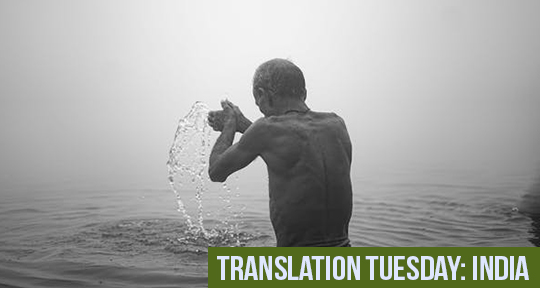In her fascinating monograph, Genres of Emergency: Forms of Crisis and Continuity in Indian Writing in English, author and professor Ayelet Ben-Yishai examines the relationship between fiction and history through the novels centering around the Emergency in India—a drastic instance of president Indira Gandhi’s imposition of power. Tracing the ways that this period continuously resurfaced in literary works, Ben-Yishai uses genre and textuality to consider how writing is not only a reflection of the world, but an active force that moves through it. In this interview, she gives her insight on this central thought, and also discusses the fundamental structure of global crises, the dangerous concept of inevitability, and some of India’s most important titles.
Katarzyna Bartoszynska (KB): Could you tell us about Genres of Emergency?
Ayelet Ben-Yishai (ABY): Genres of Emergency is about what might be the most momentous political event that contemporary readers have never heard of. In June 1975, Indira Gandhi, the third Prime Minister of India, imposed a State of Emergency throughout the country in response to what she called a “conspiracy” against her. Convicted of corruption and threatened by a growing opposition and mass demonstrations, Gandhi acted ruthlessly. Basic civil liberties were suspended, thousands were detained without trial, censorship imposed, and corruption reached new heights. Surprisingly lifted after twenty months, the Emergency became an anomaly in India’s democratic history—and was all but forgotten for many years, except, significantly, from literary fiction.
A group of novels in English, written about the period in the late twentieth century, thus forms my corpus for Genres of Emergency. Why, I wondered, did these novels return to the Emergency, long after it ended and was forgotten? There are of course different answers to this question, but overall, I would say that going back allowed the authors of such fiction to think about the ways in which the Emergency was both a one-off anomaly, and of a piece with the longer arc of Indian history and politics: a crisis for sure, but also in continuity with India’s past and future.
KB: The book was written during a different emergency: during the height of the COVID pandemic and lockdown. Did those conditions shape the argument at all, or did you find yourself noticing how your argument addressed or diagnosed that present? Did those resonances seem different from the ones you have just described?
AYB: COVID-19 brought a renewed consideration of states of emergency, employed variously world-wide to combat the global health crisis. In many of these countries, India and Israel prominent among them, the emergency measures sat far too easily with ongoing erosions of democratic government and governance. The severe limitations to individual and collective rights carried out for the sake of public health seemed oddly in keeping with those already in place in the name of “security” or “public safety.”
As I was revising my chapters and coalescing them while under lockdown at home, the connections between my research and my surroundings came fast and strong. Refracted in the pandemic emergency, it became clearer in my study that emergencies worldwide are not only similar to past emergencies, but that they are constructed on a template of “emergency”: a structure within which an emergency could be comprehended despite its ostensible singularity. In other words, emergencies are unprecedented, but need to be recognizably so. READ MORE…


